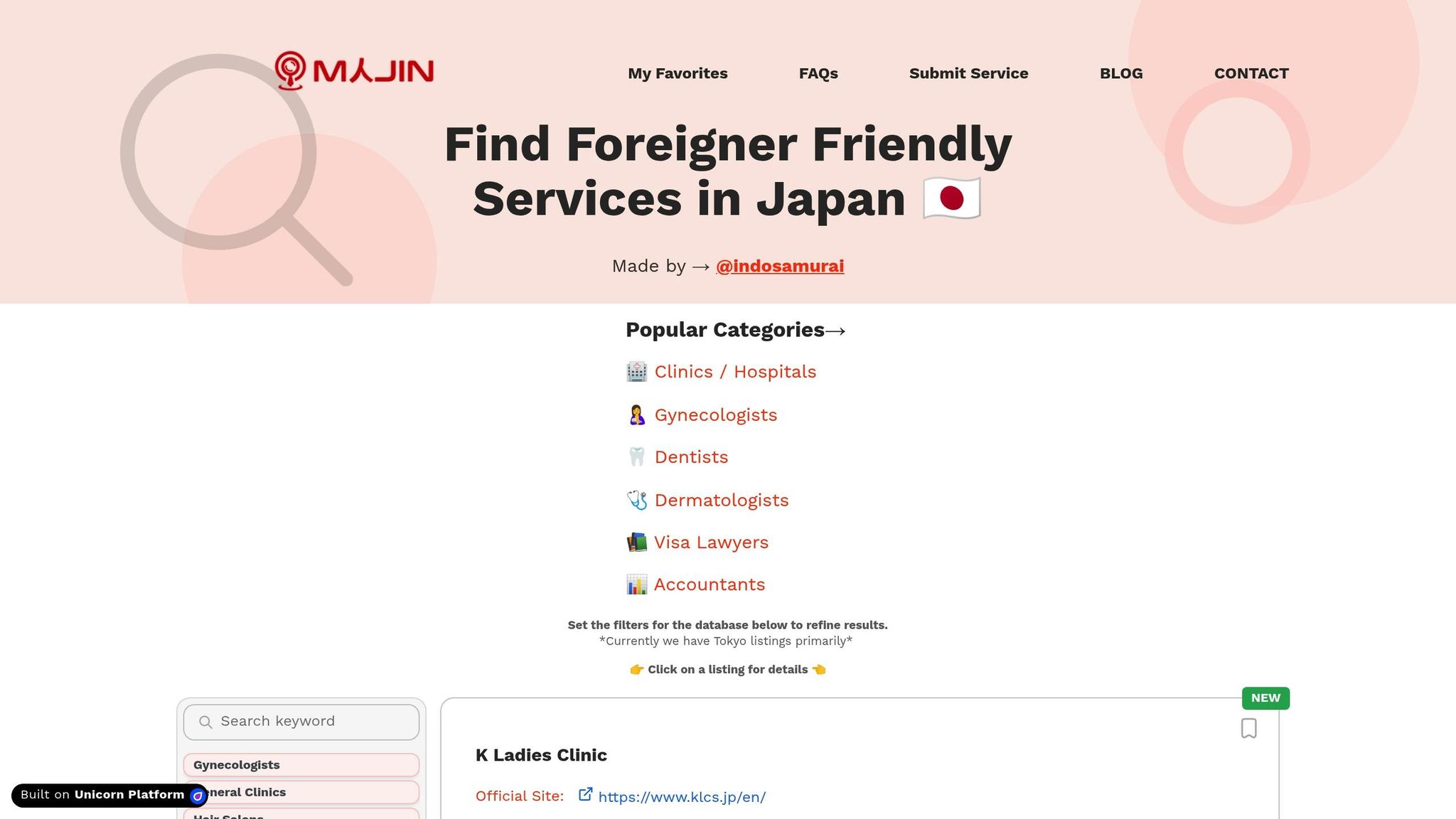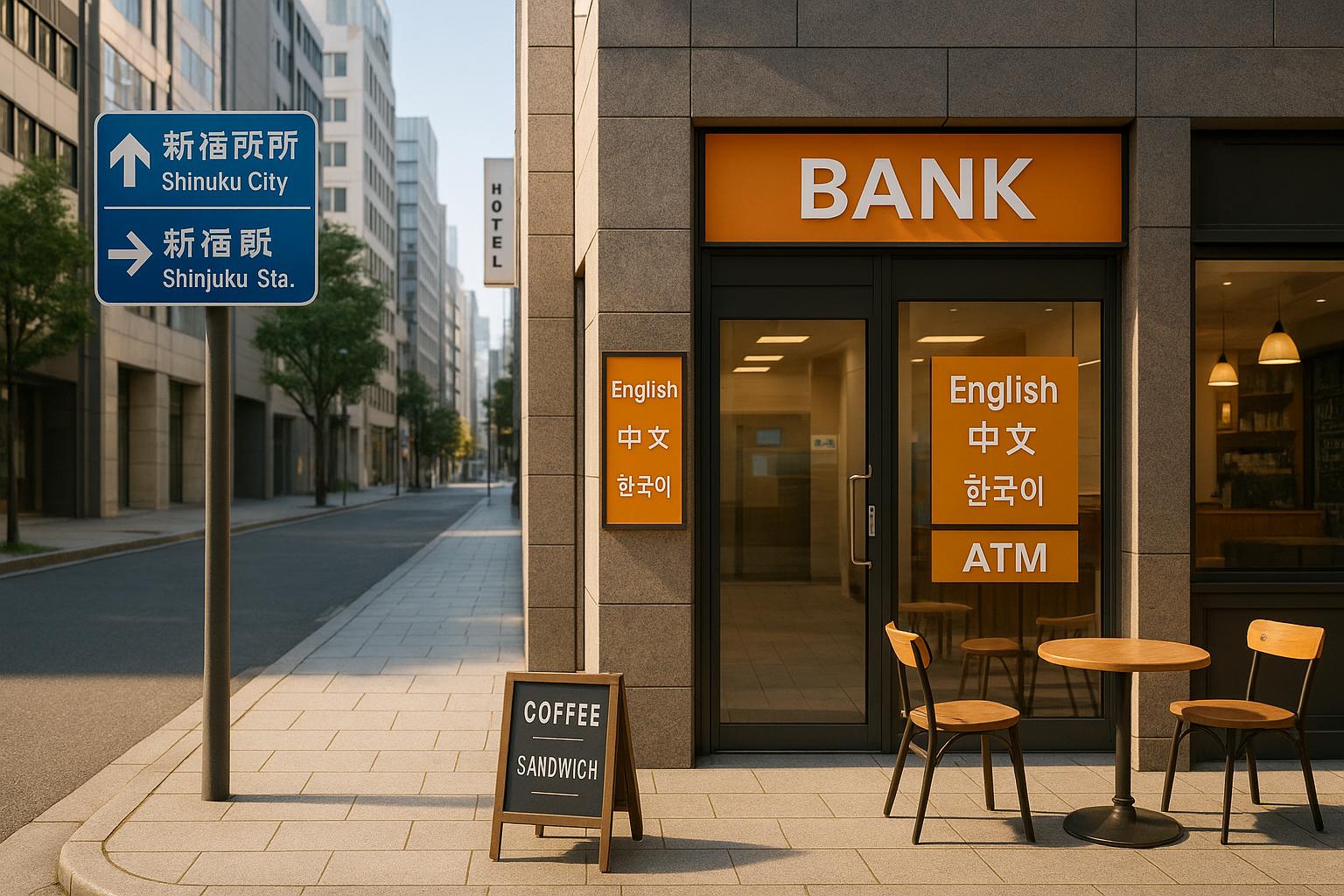To legally register a marriage in Japan, you must submit specific documents to a municipal office. These requirements vary based on nationality. For Japanese citizens, the process involves a Marriage Registration Form (Kon-in Todoke), Family Register (Koseki Tohon), and valid ID. Foreign nationals typically need a passport, Certificate of No Impediment, and birth certificate, with translations into Japanese where necessary.
Key points to remember:
- Witnesses: Two adults (18+), with completed details and valid ID.
- Translations: Must be accurate but don’t require professional certification.
- Submission Date: Becomes your official marriage date.
Contact your local municipal office or embassy early to confirm specific requirements and avoid delays. Note: Marriage registration does not automatically update visa or citizenship status.
How to Fill Out “Konin Todoke” or Marriage Registration Form in Japan| Foreigners Getting Married |
Documents Needed for Japanese Citizens
To officially register a marriage in Japan, Japanese citizens need to prepare three essential documents within the family registration system.
Marriage Registration Form (Kon-in Todoke)
The Kon-in Todoke is the official form required to legally register a marriage in Japan. You can obtain this form from any city office or download it online. It must be completed entirely in Japanese. Additionally, the form requires signatures from two witnesses who are at least 18 years old. The date you submit this form becomes your official registration date.
Family Register (Koseki Tohon)
The Koseki Tohon serves as proof of identity and family relationships under Japanese family law. It includes detailed information such as your full name, sex, birth date, place of birth, and records of parental and spousal relationships, as well as death records. This document is specific to Japanese citizens and also confirms Japanese citizenship. To get an updated copy, you’ll need to contact the municipal office where your family register is maintained.
Personal ID and Signature
A Japanese passport is the most commonly accepted form of identification. Recent updates have eliminated the need for a seal (inkan) or thumbprint on the registration form. Instead, you’ll need to write your name in Japanese in the designated signature section, as well as in the left margin in a vertical format. It’s always a good idea to double-check requirements with your local city office.
Next, let’s look at the required documents for foreign nationals.
Documents Needed for Foreign Nationals
Foreign nationals navigating the marriage registration process in Japan must meet specific documentation requirements. These can differ based on nationality and the municipal office handling your case. Below are the typical documents you’ll need.
Valid Passport
Your passport serves as proof of your identity and nationality during the registration process. Since it clearly displays your personal details, translation is usually unnecessary. Keep your passport readily available throughout, as it will be required both at your embassy and during the registration submission.
Certificate of No Impediment/Legal Capacity to Marry
This certificate confirms that you are legally eligible to marry under the laws of your home country. To obtain it, you’ll need to schedule an appointment at your embassy or consulate in Japan. Procedures differ depending on your nationality; for example, the British Embassy in Tokyo now provides a sworn affirmation instead of the traditional certificate. Once issued, check with your municipal office to see if a Japanese translation is required, and arrange for translation if necessary.
Birth Certificate and Additional Documents
A birth certificate is often required as further proof of your identity and citizenship. If the document isn’t in Japanese, you may need to provide a translated version. To avoid any surprises, contact your municipal office ahead of time to confirm whether additional documents are needed.
Make sure to check translation and authentication requirements to ensure a smooth registration process.
Translation and Authentication Requirements
Having properly translated and authenticated foreign documents is crucial for a hassle-free marriage registration process in Japan.
Japanese Translations
Japan doesn’t require certified professionals to translate documents for marriage registration, which means anyone can handle the translation. If you’re confident in your Japanese skills, you can translate the documents yourself, saving both time and money. However, it’s important that your translations are accurate, clear, and complete, with every detail properly conveyed in a professional format.
Each Japanese translation should be attached to its corresponding original document. At the end of the translation, include a translator's statement. This statement typically needs your name, a declaration confirming the translation’s accuracy, and your signature. Keep in mind that translations are mandatory for all foreign-language documents you submit, such as passports and birth certificates. Since requirements can differ between municipal offices, it’s a good idea to check with your local office for specific formatting guidelines.
Once your translations are ready, ensure they meet the necessary authentication standards required by your municipality.
Authentication by Embassy or Consulate
The authentication process depends on your home country's status under the Hague Convention. If your country is a Hague Convention member, an apostille will suffice. For non-member countries, you’ll need authentication from Japan’s Ministry of Foreign Affairs (MOFA), followed by legalization at your country’s consulate or embassy.
Before starting, confirm the specific type of certification required by the submitting party. Keep in mind that documents already authenticated by MOFA cannot be re-certified at a Japanese embassy or consulate.
For example, the U.S. Embassy and Consulates in Japan do not issue apostilles. U.S. citizens should work directly with MOFA to complete the authentication process. Additionally, the U.S. Embassy in Tokyo offers certificate of marriage translation templates, which can simplify the translation work.
For private documents that need apostilles, you’ll first need to have them notarized by state notary offices in Tokyo, Osaka, or Kanagawa - or by another state notary office - before MOFA can process them.
sbb-itb-cbc0cbb
How to Submit Marriage Registration Documents
Once you’ve gathered all your translated and authenticated documents, the next step is submitting them to the right municipal office. Knowing where to go and what to expect can save you a lot of time and effort.
Where to Submit
You’ll need to take your documents to a municipal office (市役所, shiyakusho). This could be a city, ward, town, or village office, depending on where you or your partner lives. For example, in Tokyo, popular options include ward offices like Shinjuku, Minato, or Shibuya. These offices often have experience handling international marriages and may be more accommodating for foreigners. If you’re unsure which office to visit, it’s a good idea to call ahead. They can clarify their specific requirements and let you know if they’re familiar with international marriage registrations.
When you call, confirm the paperwork you’ll need to bring. If your documents require official Japanese translations, the office can provide guidance on this as well. Once you’ve identified the correct office, double-check that all witness details on your forms are filled out accurately.
Witness Requirements
The Kon-in Todoke form requires signatures from two witnesses, which is a mandatory part of the process. Witnesses must be adults - 18 years or older for Japanese nationals, or the legal adult age in their home country for foreign nationals. They can be of any nationality. Each witness must fill out their section of the form, including their name, date of birth, address, and nationality. Accuracy is key, so make sure all details are correct.
Additionally, you’ll need to present valid identification for each witness, such as a residence card or passport, when submitting the form. This step ensures the witnesses’ identities are properly verified.
Once you’ve secured the required signatures and identifications, you’ll be ready to proceed with the submission.
Processing Times and Completion
After submitting your documents and witness confirmations, the process moves to the registration phase. The date you submit the Kon-in Todoke form becomes your official marriage registration date. If you have a specific date in mind, prepare your documents well in advance to ensure everything is ready on time. In most cases, if your paperwork is in order, the process is completed on the same day. Municipal offices are generally efficient when it comes to handling marriage registrations.
Once your registration is complete, it’s a good idea to request a Certificate of Acceptance of Notification of Marriage. This serves as proof of your marriage. Keep in mind, however, that registering your marriage does not automatically update your residence status (visa). If you’re a foreign national, you’ll need to handle any visa changes separately through the appropriate immigration channels.
Finally, don’t forget to check whether your home country requires you to report your marriage. Many countries ask their citizens to register foreign marriages with their national authorities, so make sure to review any applicable rules.
Special Considerations for International Couples
International couples face unique challenges when navigating surname requirements in Japan. By understanding these specifics, you can make the process smoother and avoid unnecessary complications.
Name Change Procedures
In Japan, married couples are required to share a single surname under Japanese law, but this rule applies exclusively to Japanese citizens. For international marriages, there’s more flexibility, though careful planning is essential.
If you're a foreign national married to a Japanese citizen, you generally have two options for managing your surname. The first involves registering a "common name" (tsūshō) at your local municipal office. This allows you to use your Japanese spouse's surname on most official Japanese documents without legally changing your name in your home country.
Using a common name can simplify many administrative tasks in Japan. You can use it on documents like your Certificate of Residence, Driver’s License, My Number Card, and Health Insurance Card. However, your Residence Card and Passport will still display your original legal name, as the common name system does not apply to these documents.
The second option is to legally change your name in your home country to match your Japanese spouse's surname. This involves going through your home country's legal name change process. The benefit of this approach is that your new name will be recognized universally, including on international documents.
When deciding between these options, consider your long-term plans. For example, if you travel internationally frequently or rely on your Residence Card for official purposes, a legal name change in your home country might be the better choice.
Next, let’s look at the age requirements and verification steps that are crucial for international couples.
Legal Age and Local Variations
Marriage age requirements in Japan are straightforward but must align with both Japanese and international laws. In Japan, the legal marriage age is 18 for both men and women, and this applies to all marriages registered in the country, regardless of nationality.
As a foreign citizen, you must meet both Japan's age requirement and your home country's marriage age laws. To confirm your eligibility, you’ll need an Affidavit of Competency to Marry from your embassy or consulate. This document verifies that you are legally free to marry under your home country’s laws, including its age requirements. Be sure to check with your embassy for specific document and age-related details.
If you’re under 18, you cannot marry in Japan without parental consent, even if your home country allows marriage at a younger age. This rule is strict and applies to all marriages registered in Japan.
To ensure a smooth process, verify age requirements with the municipal office where you plan to register your marriage. Municipal offices vary in their familiarity with international marriages, and some may request additional documents to confirm your eligibility.
Finally, keep in mind that registering your marriage does not automatically grant a visa for the foreign spouse to live in Japan. Changing your residence status based on marriage is a separate process handled through immigration. Marriage registration is just the first step in establishing your legal status in Japan.
Resources for Foreign Residents
For foreign residents in Japan, navigating the marriage registration process can feel overwhelming. Language barriers and unfamiliar procedures often add to the challenge. Fortunately, platforms like Myjin offer support to make the process more manageable.
Using Myjin for Support

Myjin serves as a directory connecting foreign residents with professionals who specialize in assisting with processes like marriage registration. These professionals are carefully selected to ensure they are familiar with the unique needs of non-Japanese residents.
For marriage registration, Myjin provides access to experts such as visa lawyers, accountants, and legal advisors. These professionals can help with verifying documents, ensuring legal compliance, and even arranging certified translations for any foreign documents that need to be submitted in Japanese. Accurate translation is essential, and Myjin makes it easy to find certified translators through its network. The platform also includes verified contact details, official websites, and location information for each service provider.
Beyond marriage registration, Myjin offers additional resources to help foreign residents navigate life in Japan. These include healthcare guides, tax calculators, and salary information, all designed to clarify your rights and responsibilities while living in the country.
Many municipal offices that handle international marriages also provide guidance in English, which can be an invaluable resource during the process.
What sets Myjin apart is its emphasis on English-speaking support. All professionals listed on the platform offer services in English, ensuring that language barriers don’t stand in the way of completing important legal and administrative tasks.
Myjin is free to use, although it does offer premium listing options for small businesses that cater specifically to foreign residents. While the platform currently focuses on services in Tokyo, it plans to expand to other major cities across Japan in the future.
Conclusion
Registering a marriage in Japan requires careful preparation, but once you understand the steps, the process can be quite manageable. For Japanese citizens, you'll need the Marriage Registration Form, Family Register, and valid identification. Foreign nationals must provide their passport, Certificate of No Impediment, and birth certificate translated into Japanese. Additionally, two adult witnesses are required to sign the form.
It's a good idea to double-check all your documents with your local municipal office beforehand, as requirements can vary depending on the location. This extra step helps avoid delays and ensures you're fully prepared. Keep in mind that the date you submit your registration form will be your official wedding date, so plan accordingly.
For international couples, translation requirements and embassy procedures demand extra attention. Be sure to contact your embassy or consulate early to obtain your Certificate of No Impediment and clarify any nationality-specific details. Starting this process early can help you avoid last-minute complications.
When completing the forms, take your time to fill them out accurately. Avoid abbreviations, and if you make a mistake, correct it by drawing two horizontal lines through the error. Foreign spouses should also include their name in Katakana to meet the requirements.
Lastly, remember that marriage registration in Japan is legally binding, but it does not automatically affect visa or citizenship status. These matters will need to be handled separately through the appropriate legal channels.
FAQs
What challenges do foreign nationals commonly face when registering a marriage in Japan, and how can they prepare effectively?
Foreign nationals planning to marry in Japan often face hurdles like navigating legal requirements, preparing the necessary paperwork, and dealing with language differences. Key documents typically include a Certificate of No Impediment (or a similar affidavit from your embassy), a translated copy of your passport, and a completed marriage registration form.
To avoid complications, it’s important to confirm the specific requirements with your local city hall, as these can differ depending on the municipality. Make sure all documents are translated into Japanese and comply with legal standards. A proactive visit to the city office can clarify the steps involved and help you sidestep potential delays. If the language barrier feels overwhelming, bringing along a Japanese-speaking friend or hiring a professional translator can make the process much smoother.
What are the surname requirements for international couples getting married in Japan, and how do they affect legal documents?
In Japan, married couples are legally required to adopt the same surname, which can be either the husband's or the wife's. This regulation is tied to the koseki (family registry) system, where a single family name is officially recorded for the household. For Japanese nationals, this shared surname must appear on all official documents, such as passports, driver's licenses, and bank accounts.
That said, if one partner is not a Japanese citizen, they are permitted to keep their original surname. This provides international couples with some flexibility, as only the Japanese spouse is obligated to use the shared surname for legal purposes. It’s worth considering this requirement carefully, as it can affect future legal documentation and processes.
What should I do if there are errors in my marriage registration documents after submission in Japan?
If you spot any mistakes in your marriage registration documents after submitting them, don’t worry - most errors can be corrected without the need to start over or pay extra fees. For small errors like typos, the fix is usually straightforward: draw two lines through the incorrect text and write the correct information beside it. However, it's best to check with your local municipal office to confirm the exact procedure.
For more serious errors or inconsistencies, you might need to go through a formal correction process. This often involves submitting a correction request form along with any additional required documents to your municipal office or the appropriate authority. To make the process smoother, reach out to your city hall for detailed instructions on how to handle the issue and what paperwork you'll need.


